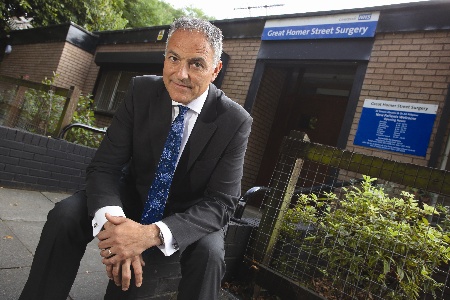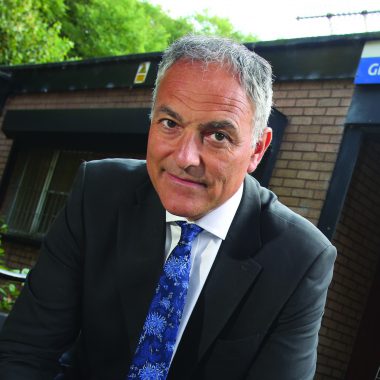
Name Great Homer Street Practice, Everton, Liverpool
List size 2,450
Full-time equivalent GPs 2
According to the index of multiple deprivation from 2011, our practice serves the most deprived population in England.
We have a high incidence of several diseases, particularly cancer and COPD. Many of our patients smoke, or have smoked, and there’s a very high incidence of lung cancer among the local population. At one point, mortality rates for lung cancer in the area were three times the national average.
We run the Violent Patients DES.
Patients sometimes get angry, swear and have challenging attitudes towards staff. Mostly this is because of health anxiety. I’ve observed an episode where a patient put a chair through the waiting room window, but he took great care not to hurt anyone when he did it. There are a few who kick off at staff to try to manipulate them. We need to provide these people with healthcare, but we also need to protect other patients and staff.
We are a ‘zero tolerance’ practice.
Sometimes we have to call the police. We’ve seen two patients convicted for abusive behaviour and damage to property in the past two years. But even if we press charges we will still have them back – both the patients who were convicted are still registered with us.
The biggest challenges for GPs in this environment are ensuring all staff members feel safe and secure and being able to keep providing care.
We are quite training-focused at the practice. Recently, we’ve done a course in de-escalation training with a former policeman. We learned that the three main ways to prevent an angry conversation getting worse is to make sure your body language is not aggressive, your tone of voice is calm and your are listening carefully to the patient so you can understand what they’re anxious about. It’s not just about agreeing to whatever they want.
As well as having the skills to work with angry patients, we also have suitable premises.
A training module our team did a few years ago educated us on the fact that people will use whatever is to hand as a weapon – which, when you look down at your desk, helps you notice how many sharp objects we normally leave lying around.
We have extensive alarm systems in the practice. There’s a silent panic button on the phones and computers that tell staff if there’s something going on in a particular room, and in which room. We also have a ‘major event’ button that sets off all the fire alarms in the building, but thankfully have never used it. In fact, the last time I used the silent alarm was by pressing it with my elbow by mistake. I think it gave my trainee a fright.
We have a community matron and health trainer.
The community matron does home visits and helps patients who have social needs, such as housing, as well as health issues. The community trainer comes in for a half-day each week, and provides five half-hour sessions to help patients improve their health – by quitting smoking, cutting down alcohol consumption or losing weight, for example. She’s also improved diabetes control for several patients. We’re excited by the possibility that the CCG might offer to double the number of hours our health trainer offers. NHS Liverpool CCG really supports our work – we don’t need to join a federation to protect our business, and I’m not aware of anyone in Liverpool who does.
The best thing about the job is getting patients’ appreciation.
We work in an area where there’s a lack of opportunity, be that jobs, housing, education or environment. There’s a lot to do here and it’s challenging but patients are respectful, and often say ‘thank you’.
Pulse October survey
Take our July 2025 survey to potentially win £1.000 worth of tokens





 Oviva’s fully remote Tier 3 Weight Management programme
Oviva’s fully remote Tier 3 Weight Management programme







